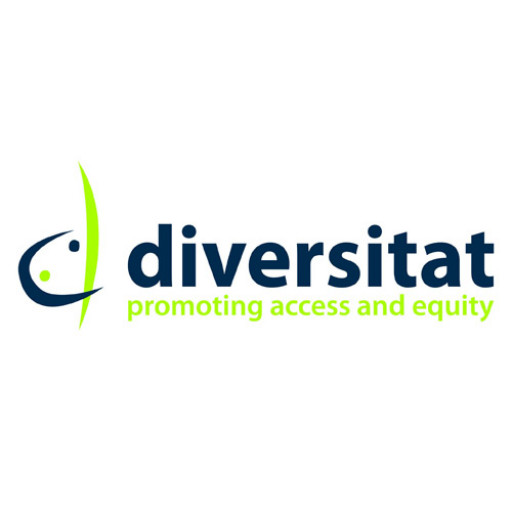Community Services is a dynamic and rewarding field that focuses on supporting individuals, families, and communities to improve their well-being and quality of life. This program provides students with a comprehensive understanding of social services, counselling principles, and community development strategies necessary to make a positive impact in diverse settings such as youth centers, aged care facilities, rehabilitation centers, and community outreach programs. Throughout the course, learners develop essential skills in communication, ethical practice, crisis management, and cultural sensitivity, equipping them to respond effectively to the needs of vulnerable populations. The curriculum includes foundational topics such as mental health awareness, case management, administering support programs, and working within legal and ethical frameworks. Practical experience is a core component of the program, with internships and work placements offering real-world exposure and networking opportunities that prepare graduates for employment in various community service roles. This qualification is ideal for individuals passionate about helping others and making meaningful contributions to society. Upon completion, students are prepared for entry-level positions across the community services sector or further study in related fields such as social work or counselling. The program emphasizes a person-centered approach, promoting empowerment, resilience, and social justice. Whether you aim to work with children, youth, adults, or the elderly, this course provides the knowledge and skills necessary to succeed and develop a caring, professional practice in the community services industry.
The Community Services program offered by TAFE NSW is designed to equip students with the essential knowledge and practical skills needed to make a positive impact in various social and community settings. This comprehensive course covers a wide range of topics, including understanding the diverse needs of individuals and groups within communities, developing effective communication and interpersonal skills, and applying ethical practices in social services. Students will learn how to assist clients with their social, emotional, and physical well-being, while gaining insight into social policies, community development principles, and advocacy strategies. The program emphasizes practical, real-world experience through work placements and hands-on projects, allowing students to apply their learning in authentic environments. Throughout the course, students will explore issues such as mental health, substance abuse, family violence, and disability support, preparing them to work in various roles within community organizations, government agencies, and non-profit sectors. The curriculum also focuses on cultural competency, diversity, and inclusion to ensure graduates can work effectively with clients from different backgrounds. By completing this program, students will be prepared for entry-level roles such as community support worker, youth worker, disability officer, or aged care assistant. The course also provides a solid foundation for further studies in social work or related fields, offering pathways for career advancement. With an emphasis on both theoretical knowledge and practical skills, the Community Services program at TAFE NSW aims to produce capable, compassionate, and professional practitioners dedicated to improving community well-being and social justice.
Admission to the Community Services programs at TAFE NSW typically requires applicants to meet certain prerequisites to ensure they are prepared for the rigors of the coursework and the practical applications involved in the field. Prospective students usually need to have completed Year 10 or equivalent; some Certificate programs may accept applicants with less formal education supplemented by relevant work or life experience. Prior experience in assisting or supporting individuals within community settings can be advantageous but is not always mandatory.
Applicants are often required to demonstrate basic literacy and numeracy skills, as these are essential for understanding complex concepts and completing assessments. TAFE NSW may utilize assessment tools or require evidence such as a language, literacy, and numeracy (LLN) test to evaluate the applicant’s capability. For certain advanced or specialized courses, prerequisites may include further qualifications such as a Certificate III in Community Services or related fields, or relevant work experience, to ensure students possess foundational knowledge.
Some programs may also have specific health and fitness requirements, including up-to-date immunizations and clear Criminal History Checks, due to the nature of practical placements and direct interaction with vulnerable groups. For international students, additional requirements such as proof of English language proficiency (e.g., IELTS, TOEFL) are generally necessary to ensure they can meet the communication demands of the coursework.
Enrolment procedures usually involve submitting an application online or in person, along with supporting documents such as academic transcripts, evidence of prior qualifications, and identification. Interviews or assessments may be conducted as part of the selection process for certain programs, especially where places are limited or where work in sensitive environments is involved.
Students are encouraged to review the specific entry requirements listed for each community services course on the TAFE NSW website, as prerequisites can vary depending on the exact qualification level and specialization. It is also recommended to consult with course advisors or student services to clarify eligibility criteria and ensure all requirements are fulfilled prior to application.
Overall, the program requirements aim to ensure that students are adequately prepared for both the theoretical and practical elements of community services work, emphasizing the importance of suitable educational background, personal suitability, and health and safety considerations. By meeting these prerequisites, students can maximize their chances of successful completion and future employment in the community services sector.
Financial assistance options for Community Services programs at TAFE NSW are designed to support students in achieving their educational and career goals. TAFE NSW offers a range of government-subsidised training opportunities, which significantly reduce the cost for eligible students, including concessions and subsidies for vocational education and training (VET). The New South Wales Government’s Smart and Skilled program provides eligible students with subsidies that make studying more affordable, and students can access this funding if they meet specific criteria such as age, residency, and prior qualifications.
Additionally, TAFE NSW students may be eligible for VET Student Loans, a government loan scheme that helps cover tuition fees for specific diploma programs. Although the availability of loans varies depending on the course and individual circumstances, this option allows students to defer payment for their studies, paying back the loan after they complete the program and meet income thresholds.
In some cases, employers may also contribute to a student’s education costs through study assistance or reimbursement programs, especially if the qualification aligns with their workforce development plans. TAFE NSW also offers tailored payment plans, enabling students to pay their tuition fees via installment options depending on their financial situation, making it easier to manage study expenses.
For those who do not qualify for government support or wish to pursue more extensive studies, private financing options such as personal loans or scholarships may be available. Scholarships are occasionally offered by TAFE NSW or external organizations to support students demonstrating financial need, academic excellence, or community service commitment. Students are encouraged to contact TAFE NSW student support services or visit their official website to explore eligibility requirements and application procedures for these financial assistance programs.
Moreover, community-based and charitable organizations sometimes provide bursaries and grants to assist students in funding their studies, especially those from marginalized or underrepresented backgrounds. Utilizing a combination of these financial support options, students can reduce the financial barriers to obtaining a qualification in Community Services, empowering them to develop essential skills and contribute meaningfully to their communities.
The Community Services program offered by TAFE NSW is designed to prepare students for meaningful careers in various areas of social assistance and support. This program provides students with foundational skills in client communication, ethical conduct, and community engagement, equipping them to work effectively within diverse community settings. Throughout the course, students gain practical knowledge in areas such as youth work, aged care, disability support, mental health, and family support services. The curriculum emphasizes not only theoretical understanding but also practical skill development through hands-on training and work placements, enabling students to apply their learning in real-world environments.
The program covers essential topics including legal and ethical considerations in community work, cultural awareness, and strategies to empower vulnerable populations. Students learn how to assess client needs, develop care plans, and collaborate with multidisciplinary teams to deliver effective support. The community services sector is dynamic and demanding, requiring professionals to be adaptable, empathetic, and resilient—qualities that are fostered throughout the course.
Completed students may find employment opportunities in a wide range of settings such as youth centers, residential aged care facilities, community health agencies, disability organizations, and non-profit organizations committed to social justice and community well-being. The qualification prepares graduates for entry-level roles and further education in human services or related fields. Additionally, TAFE NSW emphasizes the importance of ongoing professional development and compliance with sector-specific standards, ensuring graduates are ready to meet industry expectations.
The program's flexible delivery options, including full-time, part-time, and online learning, allow students to balance their studies with work and personal commitments. Support services are available to assist with career planning, skill development, and industry connections. Overall, the Community Services program at TAFE NSW aims to empower students with the knowledge, skills, and ethical foundation necessary to make a positive impact in their communities and advance within the social services sector.








